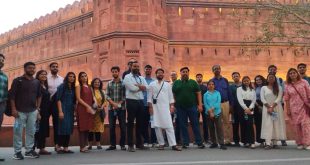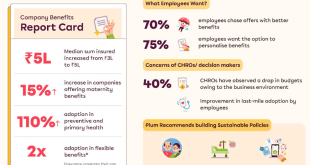24 September 2022 – An estimated 1.5 million fans are expected to visit Qatar to attend this year’s FIFA World Cup Qatar 2022™. To ensure the safety of players, officials, fans and local residents throughout the tournament, health officials at the Ministry of Public Health (MoPH) and World Health Organization (WHO) have put a broad set of measures in place to mitigate any potential public health risks.
The efforts are part of the three-year Sport for Health partnership between the MoPH and WHO. Along with health promotion, the partnership’s health security pillar plays an essential role in ensuring the health and well-being of the participants in mega sporting events . This includes risk assessment, mass gathering protocols inside and outside stadiums, event-based surveillance to protect people from infectious disease outbreaks and risk communications.
“Mega sports events like the World Cup are attended by significant numbers of people which has the potential to strain public health and response resources of the host nation or community. Preparation is critical to any effective health security plan and Qatar’s health-care sector has undergone remarkable transformation in recent years,” said Dr Hamad Al Romaihi, Director of the Health Protection and Communicable Disease Control Department at the MoPH.
“Qatar’s health-care sector has significantly grown and expanded throughout the last decade. In the public sector alone, we have opened ten new hospitals and 16 new primary health centers since 2010, significantly boosting capacity across the system. This transformation has also been seen in our emergency medical services, with an expanded national Ambulance Service and the opening of the region’s largest Trauma and Emergency Center in 2019.”
“Another significant area of development has been our workforce. We have placed great importance on building a strong, highly skilled team of health-care professionals across the system to lead the delivery of high-quality care to Qatar’s population. All football fans visiting Qatar for the FIFA World Cup can be reassured that, if needed, they will receive health-care services from Hamid Medical Centre teams on par with the very highest international standards,” added Dr Al Romaihi.
Through the Sport for Health partnership, WHO is supporting the Qatar MoPH through provision of technical guidance in applying the risk-based approach when planning for high-visibility events and enhancing response capacities, including outbreak management. Technical assistance will complement Qatar’s public health expertise with the latest best practice and experience gained from recent mega sporting events, including but not limited to the Beijing Winter Olympics held earlier this year.
Qatar’s health-care teams have gained significant experience in delivering services for major events and gatherings in Qatar. In recent years Qatar’s health-care workforce has been involved in large-scale tournaments hosted in Doha, including the 2019 FIFA Club World Cup; the IAAF World Athletics Championships 2019; and the 2021 FIFA Arab Cup™.
FIFA has already accumulated experience of organising football under pandemic conditions. It responded quickly to the pandemic, setting up a Task Force in collaboration with stakeholders to oversee the World Cup qualifying competition. Robust protocols were put in place, in line with WHO recommendations, to protect the players and these were refined over time to ensure the safe return of spectators.
Qatar, meanwhile, achieved one of the world’s lowest COVID-19 mortality rates and highest vaccination rates, thanks to its science-led approach, helped by the development of its health-care system.
“Lessons learned during last year’s Arab Cup have shown us that mass gatherings can be successfully delivered if properly managed but they can never be zero risk. Still, associated risk can be decreased by applying tailored, event-specific precautionary measures to the venues, the participants, and the context in which the event takes place, within a general reinforcement of surveillance and public health measures implemented in the host country,” says Dr Rayana Ahmad Bou Haka, WHO’s Representative to Qatar.
”Now our plan is to build on best practices and recommendations from the FIFA Arab Cup™ in late 2021, and strengthen health emergency preparedness and ensure maintenance of precautionary measures for containing infectious diseases, including COVID-19, to keep people safe and healthy,” added Dr Bou Haka.
The MoPH and WHO have collaborated this year to run a series of training workshops and simulated exercises ahead of the World Cup. “When we support these kinds of simulation exercises, we typically think up and present something that might be likely to happen. When we do this, we always want to make sure that the simulated crisis is big enough to actually stress the system, something like a mass casualty event. This sort of exercise will identify areas requiring further strengthening,” said Gillian Dacey, who runs simulation exercises for WHO.
WHO supports and encourages the use of simulation exercises as part of emergency preparedness planning because over the years, it’s become clear that structures need to not only be in place, but also properly functioning, in order to effectively respond to health emergencies.
The unique Sport for Health partnership aims to create a blueprint to protect and promote health at future mass gatherings. FIFA World Cup Qatar 2022™ represents a unique opportunity to develop a new approach to organizing mega sports events factoring in lessons learnt from the pandemic and reinforcing sports and health as a pathway for recovery.
 Newspatrolling.com News cum Content Syndication Portal Online
Newspatrolling.com News cum Content Syndication Portal Online






